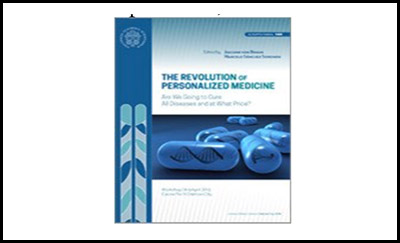April 2019, Vatican, Rome, Italy

Those of us working in gender-specific medicine are asked repeatedly why the sex of the patient matters if we are able to characterize the individual genome. Put simply – will the advent of personalized medicine with its dependence on the genomic analysis of the patient make the consideration of gender irrelevant? Indeed, the genomes of different individuals differ by between 1 and 3%.
The answer is that in identifying the systems that operate to produce phenomic characteristics, it is clear that personalized medicine does not make biological sex irrelevant, but reinforces its essential role in shaping the phenotype. In defining the moral and ethical responsibilities of the physician/scientist, this is a crucially important concept. It is important to note that in interpreting genomic data which are necessarily sex-specific, fashioning gender-specific therapy to address those differences will inevitably follow. It is equally important for those involved in changing genomic structure to be cognizant of the fact that the consequences of their intervention might have significantly different consequences depending on the sex of the subject. This is a consideration rarely if ever commented on in reports of such interventions.
The profound alterations in the physician/scientist’s view of human physiology over the past two centuries of medical investigation have evolved in three sequential phases. Historically, we regarded humans, with the exception of reproductive biology, as essentially interchangeable. The medical research of the latter half of the 20th century introduced the realization that men and women are not, in fact, interchangeable but significantly different, establishing the relatively recent discipline of gender-specific medicine; the detailed study of the differences between men and women’s normal function and their experience of the same diseases. The new approach produced cornucopia of data, the extent and significance of which were completely unanticipated.
Check out the publication on the Pontifical Academy of Sciences
